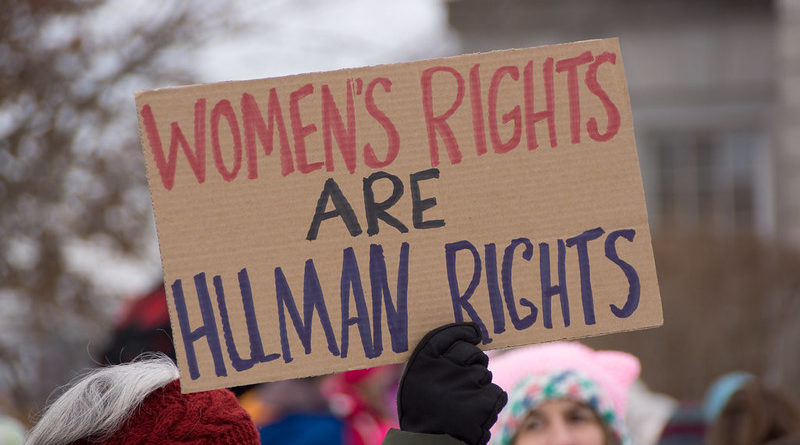Women’s Rights: History and Future
Picture of women’s rights sign courtesy of Flickr.
Zoe Hill
Opinions Staff Writer
This article was written before the suspension of in-person classes and closure of housing for most students due to the coronavirus
March is Women’s History Month, a month that has only been officially observed for the last four decades.
This year, women in the United States are celebrating a hundred years of suffrage.
A few years after being granted the right to vote through the nineteenth amendment, women sought to pass another amendment: the Equal Rights Amendment (ERA).
If ratified, the ERA would eliminate discrimintation on the basis of sex. This was proposed ninety-seven years ago, but two months ago, the final state to pass the three-fourths ratification threshold vote has once again brought hope back to the amendment.
Virginia became the thirty-eighth state to support the ERA in late January, and this has made many antsy for what’s to come.
When the senate passed the amendment in March of 1972, it was up to the states to individually vote on it.
At the time, thirty-five states, just three shy of ratification, voted in support of the ERA within the decade.
However, the Congressional deadline passed in the 1980s, leaving the fate of the amendment up in the air.
In the last few years, the ERA has garnered the support of the three remaining states needed, with the most recent being Virgina.
As with most things in politics, there is still a barrier to equality: that forty-year-old deadline.
All hope is not lost, however.
As recently as last month, a bill passed in the House of Representatives to remove the timeline associated with the ERA. If passed in the senate, the ERA would be immediately ratified as the twenty-eighth amendment of the Constitution.
Essentially, the fate of gender equality is in the hands of the senate. But with a nearly partisan vote in the House, it seems unlikely that Congress will vote to pass the bill.
This is extremely disheartening to me.
It is laughable to me that women are not equal in the eyes of the law.
In 2020, it is almost surprising that women still are not equal.
See also- Dayton’s Charity Adams Earley: An Accomplished Historical Figure to be Remembered
Although I am disappointed in my representative for voting nay, I can see the issues that arise from dropping the deadline.
Since the introduction of the ERA, five states have rescinded their support for ratification. These states include Nebraska, Tennessee, Idaho, Kentucky, and South Dakota.
If the deadline were to be extended to include the three states that have come forward in recent years, why should Congress ignore those who have gone back on ratification as well?
With that being said, what is the solution?
Depending on where you fall, there are many possibilities. For me, I believe in the ideology of Supreme Court Justice Ruth Bader Ginsberg.
She has come out in support of throwing out the ERA and starting over. I agree that this would be the best thing for the women’s equality movement.
I think that if we could pass a new version of the ERA in Congress and have it ratified by enough states, its power cannot be questioned.
We will not have achieved equality through a loophole or an exception.
This country has a funny way of discounting those whose voices ring the loudest, and I have no doubt that the ERA will constantly be tainted by its unclear means of ratification.
I want the Equal Right Amendment for my mom, my sister, my roommate, my best friend, and myself.
I want the ERA for every woman, man, and non-binary person in this country.
The only way that I believe we can achieve true equality is by starting fresh and getting a new amendment underway.
I cannot see success for this plan under the current administration, which is why I will celebrate the centennial of women’s suffrage by voting in the primaries this week and the General Election in November.
I am disgusted by the standard of discrimination in this country.
We need to change, and it all starts with the empowerment of each other and your absolute right to vote.
Get in on the madness of democracy by registering to vote to ensure 2020 will be a monument in women’s history.
Register to vote here
For more opinion pieces like Flyer News on Facebook and follow us on Twitter (@FlyerNews) and Instagram (@flyernews)

